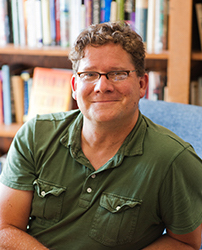 On the Artist’s Faith and Latest Album, Coloring Book
On the Artist’s Faith and Latest Album, Coloring Book
While Christian music too often seems shrouded in an apathetic redundancy no longer phased by the ideas of God, love, and grace, Chance the Rapper reclaims the impassioned authenticity of Christianity with his songs. In his latest article, “I Speak to God in Public: Chance the Rapper’s Faith,” PLT Contributor David Dark explores the lyrics that boldly proclaim the artist’s faith convictions. The separation of the spiritual and secular may be what society is pushing for, but Chance disbands the divide with the release of his latest album, Coloring Book. The result is the potential for beholding blessedness and glory.
In the article, featured on MTV’s website, Dark concludes:
Coloring Book won’t be boundaried up. It’s made up of songs of innocence and experience, and full humanity requires both. We need a profound and ongoing recognition of both to keep from becoming hopelessly estranged from ourselves. It’s a process Chance the Rapper chronicles with wit and wonder: “You must’ve missed the come-up, I must be all I can be / Call me Mister Mufasa, I had to master stampedes.” In Chance, we have a chronicler determined to be a living and loving witness to his own experience. We also have, on the authority of Irenaeus of Lyons, a second-century Church father, that a glory of God is a human being fully alive. Maybe there’s glory to behold here. Maybe there’s glory everywhere. Are you ready for your blessing?
To read the full article on MTV’s website click here.
David Dark is an assistant professor at Belmont University in the College of Theology and Christian Ministry and also teaches at Riverbend Maximum Security Institution. His publications include Life’s Too Short to Pretend You’re Not Religious (2016), The Sacredness of Questioning Everything (2009) and The Gospel according to America: A Meditation on a God-blessed, Christ-haunted Idea (2005).
